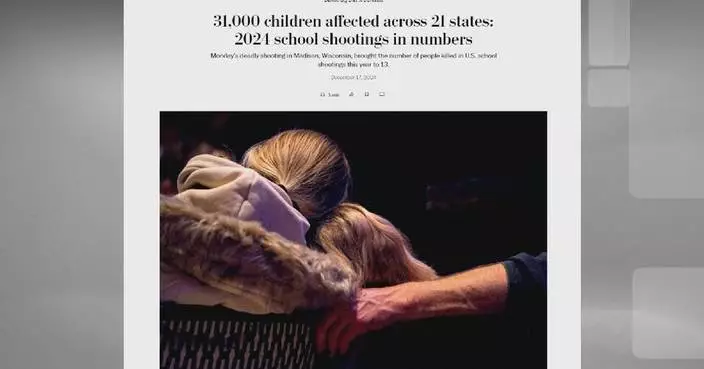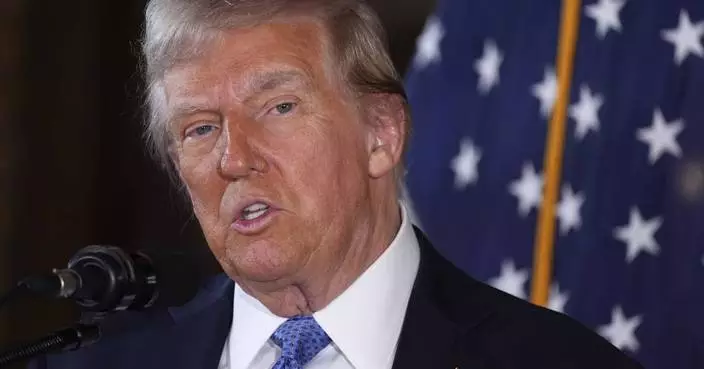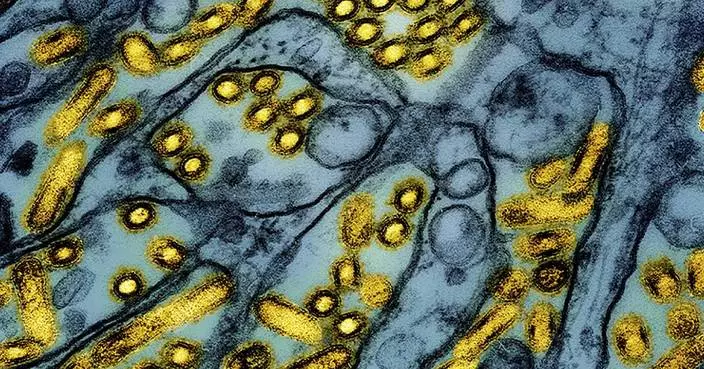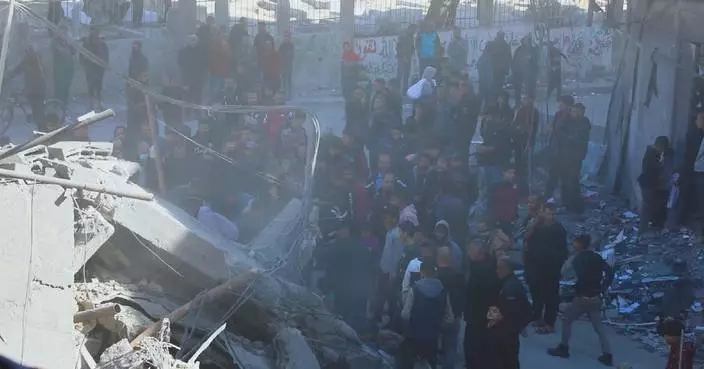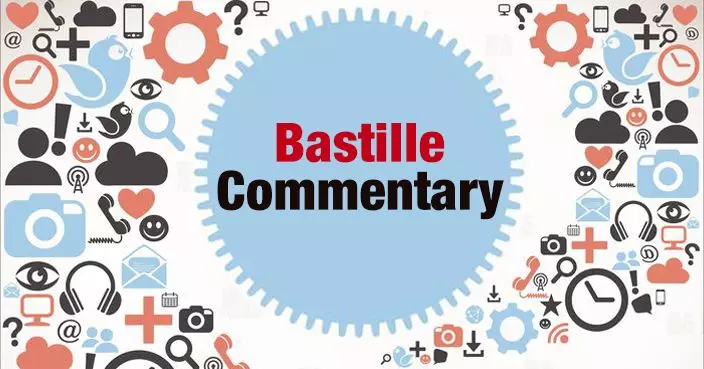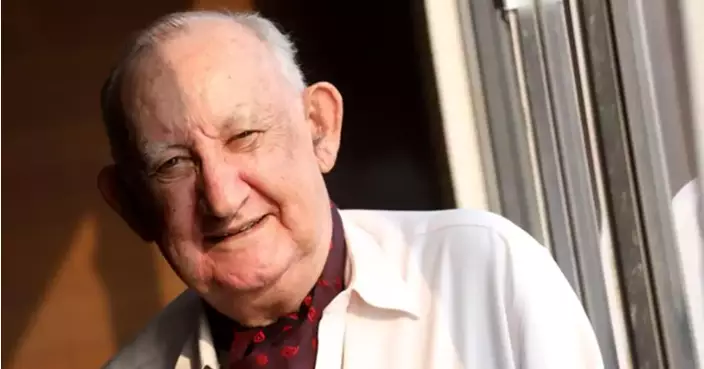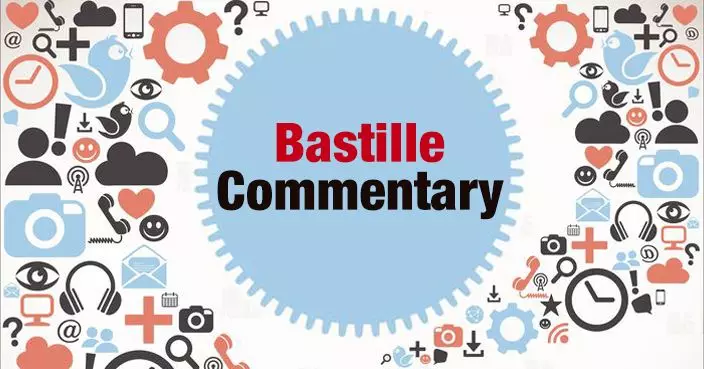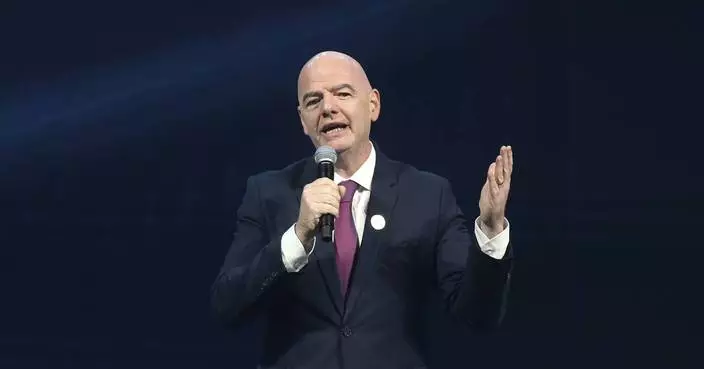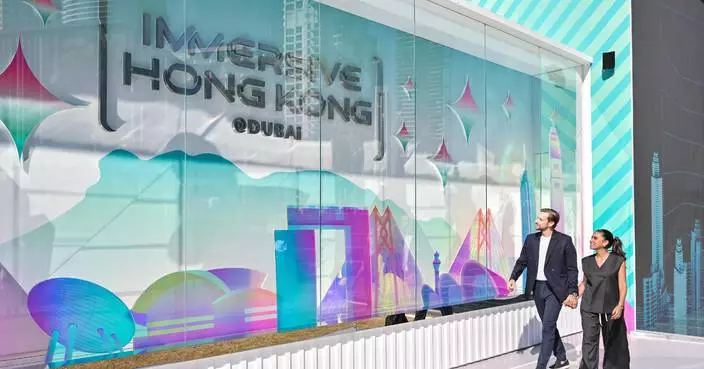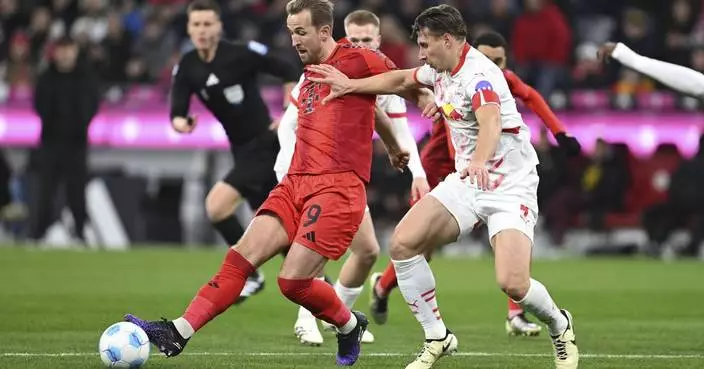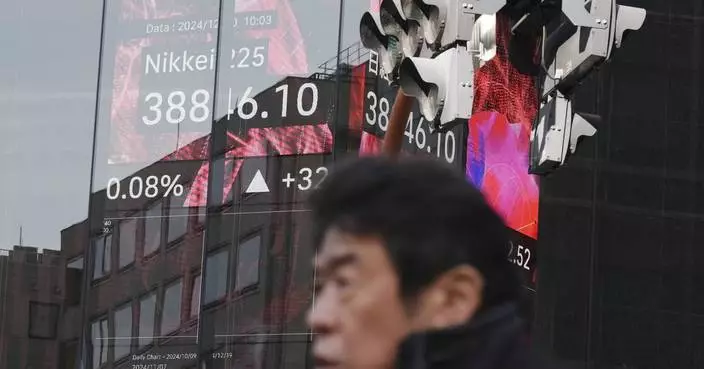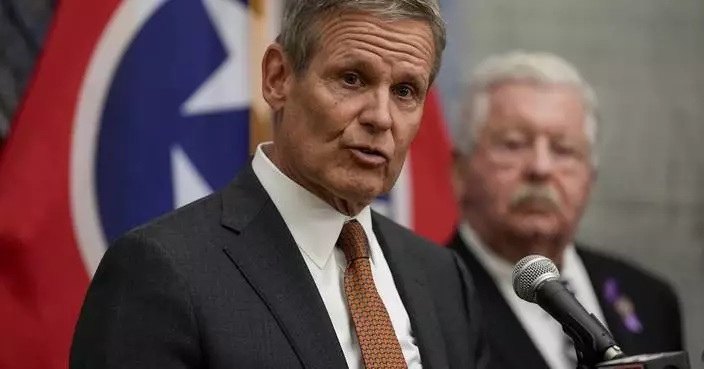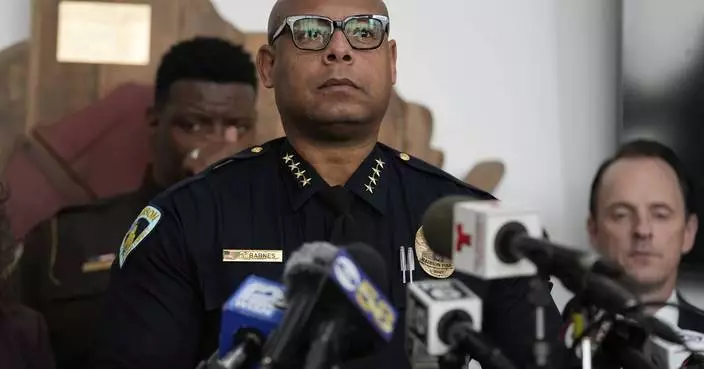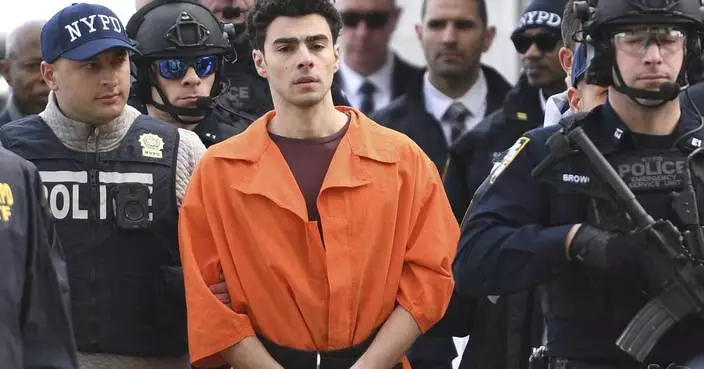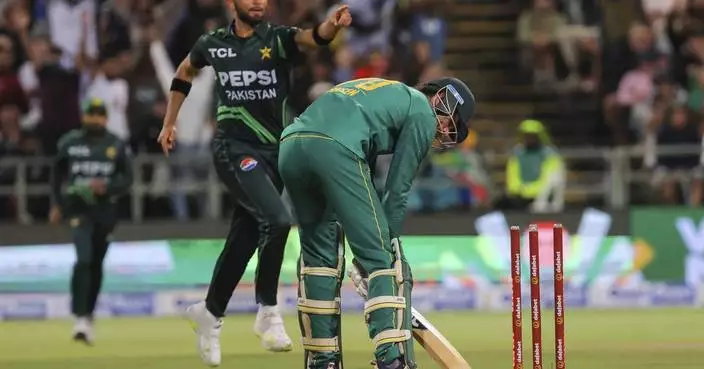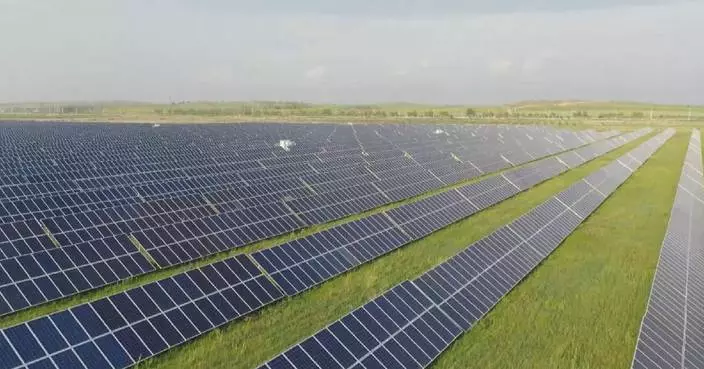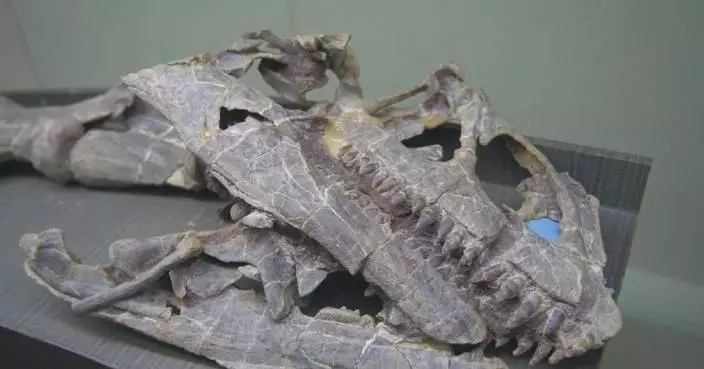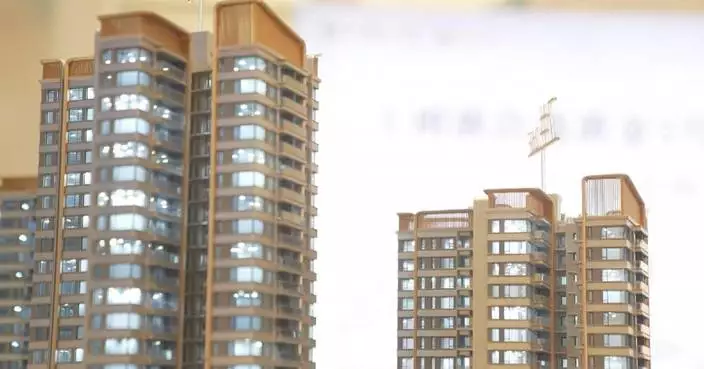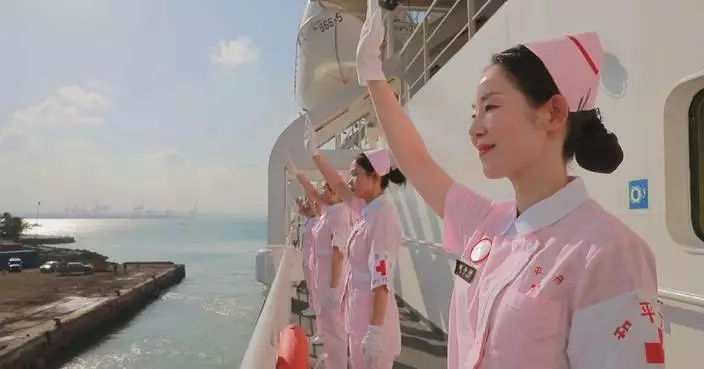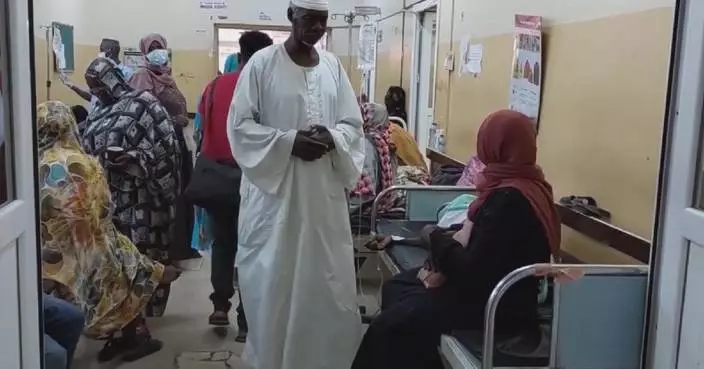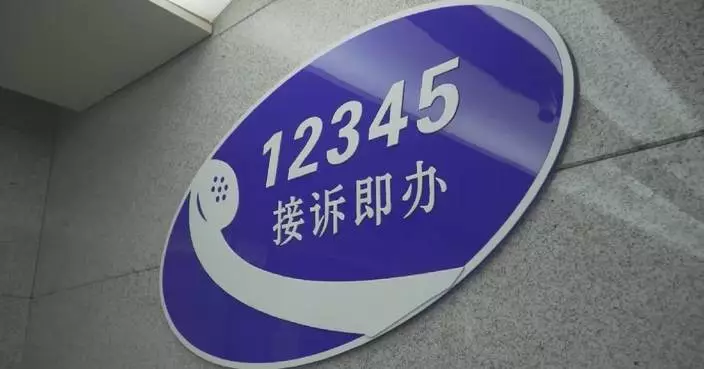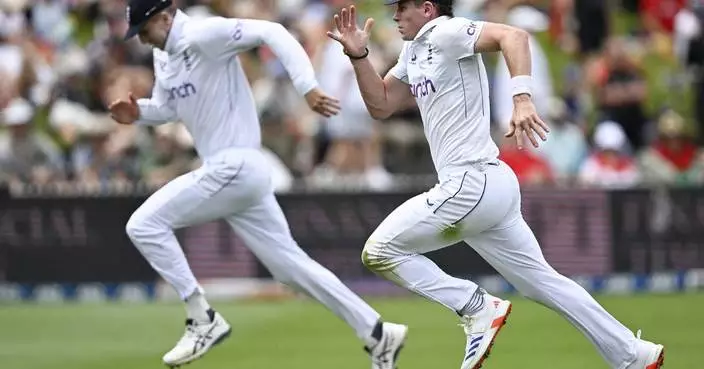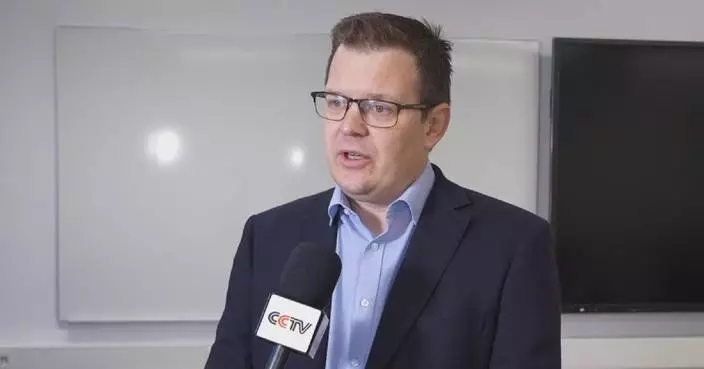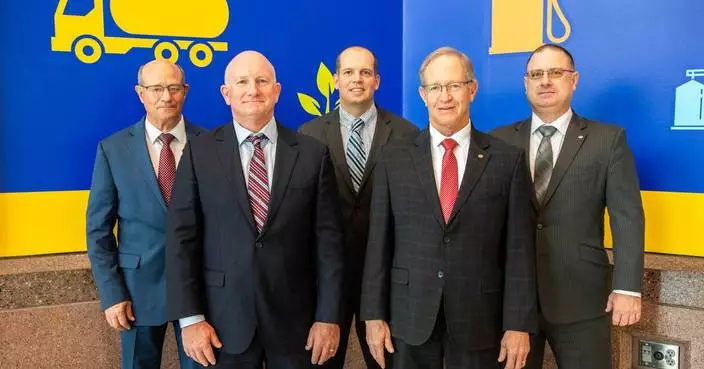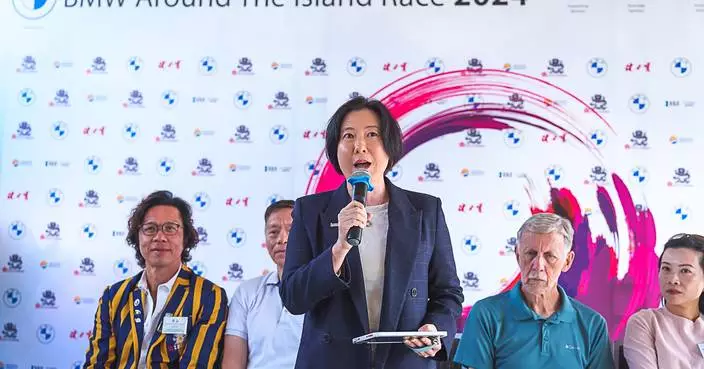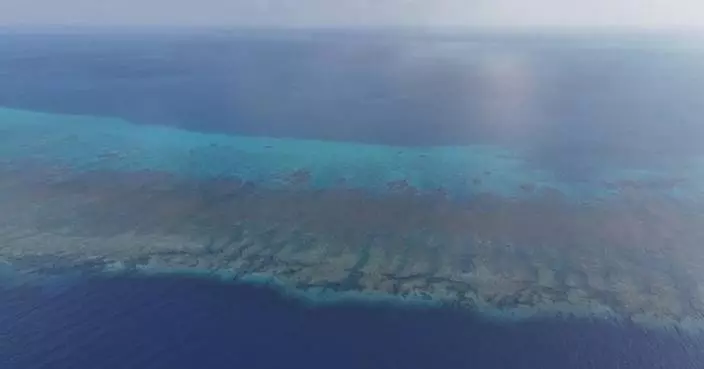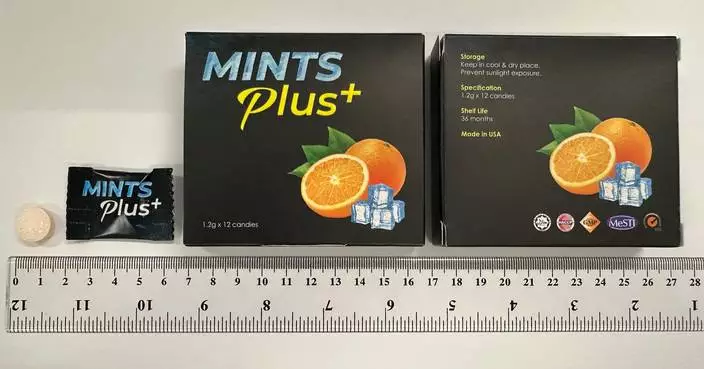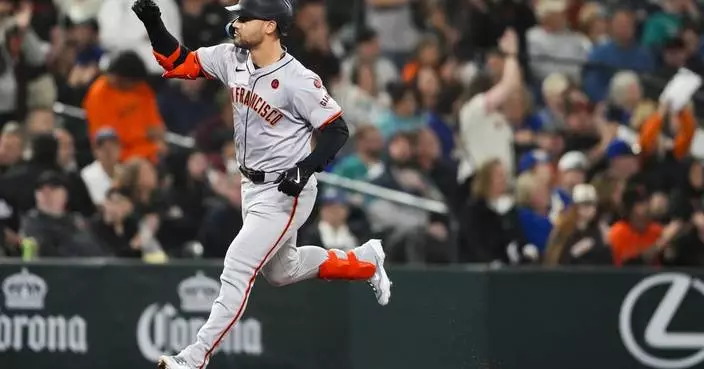Feature · News
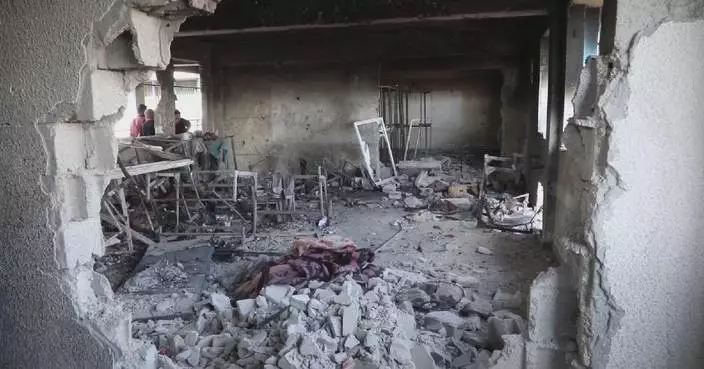
Palestinian death toll from Israeli attacks in Gaza rises to 44,976
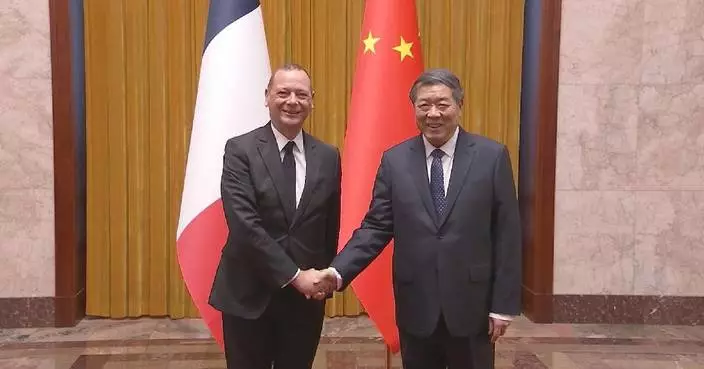
Chinese vice premier calls for more dialogue, cooperation with France

First cargo ship returns to China from Chancay Port in landmark voyage

U.S. Supreme Court to hear arguments over TikTok ban
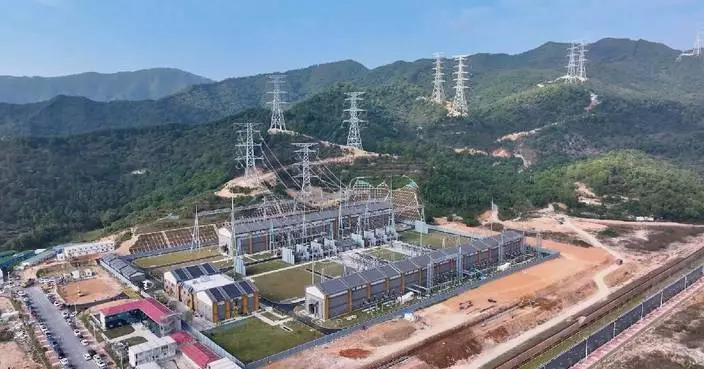
Chinese mainland supplies 75.7 billion kwh to Macao over 40 years
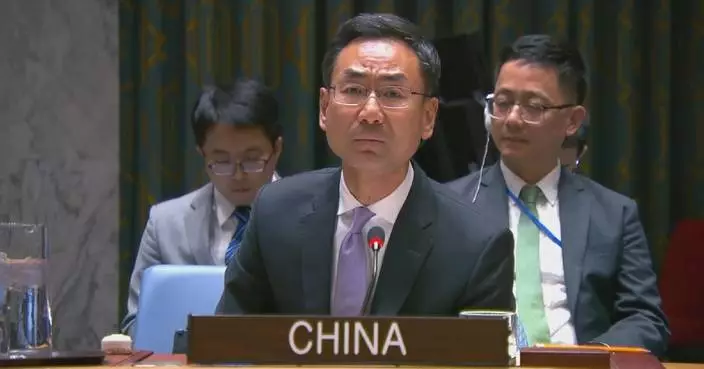
China calls for political settlement of Korean Peninsula issue
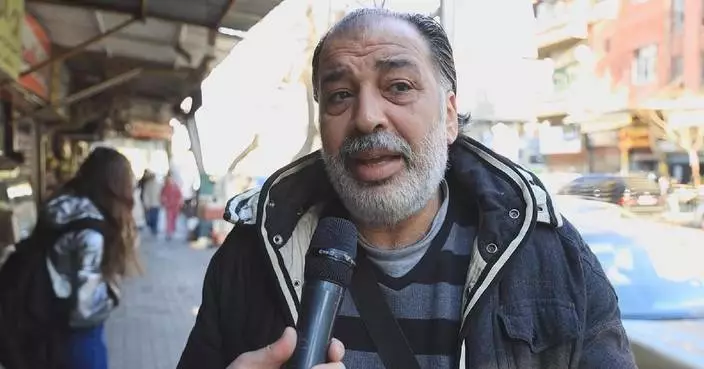
Syria's economy faces severe challenges, compounding suffering
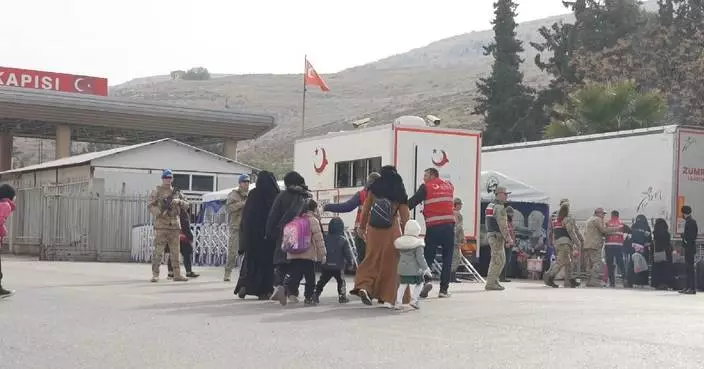
Reopening of border gates sparks mixed reactions in Türkiye as Syrians plan their return
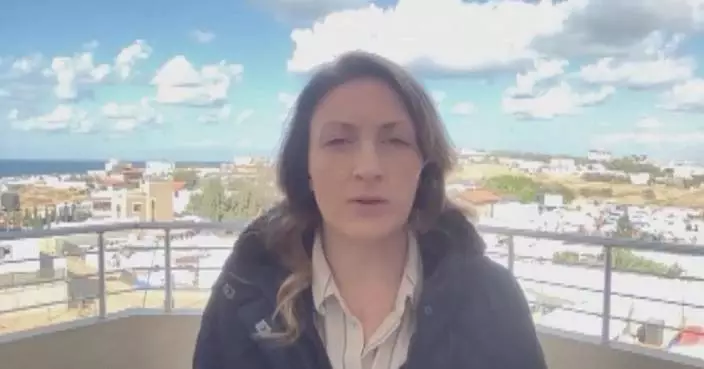
Gaza suffers highest per capita child amputee rate globally: UNRWA official
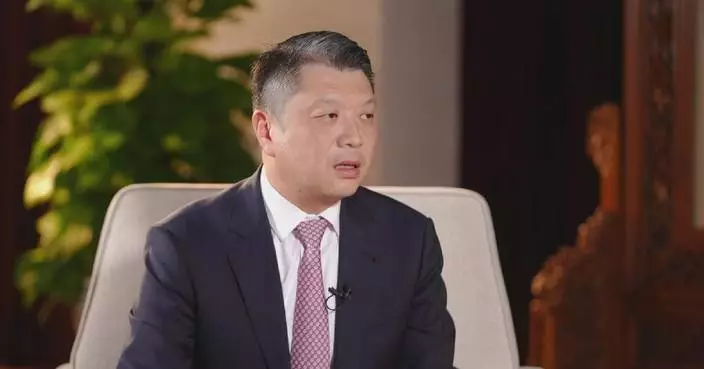
Macao aims to diversify economy beyond tourism sector: business leader
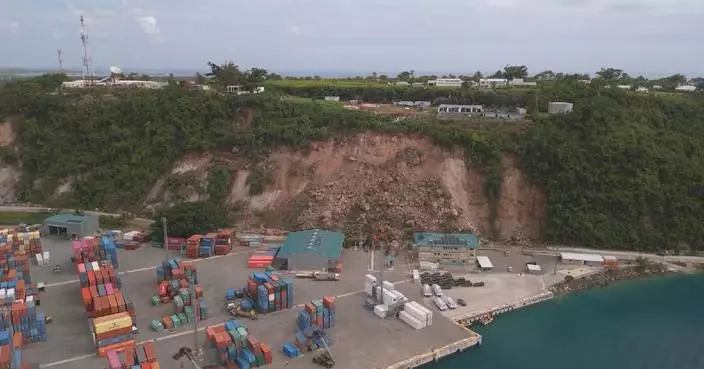
Vanuatu quake survivors recall moment disaster struck as rescue work continues

China further optimizes cash-pooling service for multinational companies

Palestinian death toll from Israeli attacks in Gaza rises to 45,059
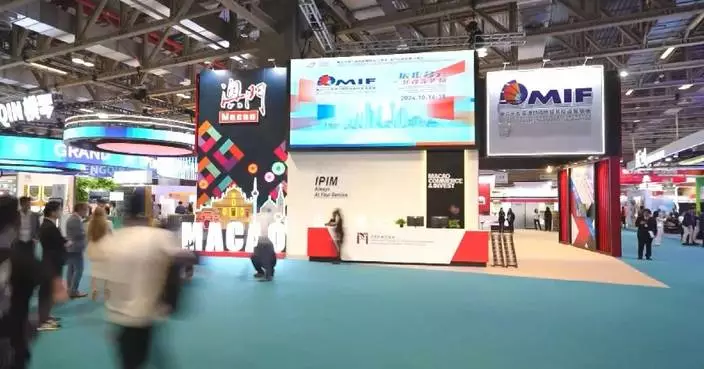
Macao emerges as global hub for conventions and exhibitions, driving economic diversification and international recognition

Attempts to contain China not to succeed: Chinese FM spokesman

External pressure never defeats China, only drives its faster growth: former vice minister of finance
Syria's economy faces severe challenges, compounding suffering
Reopening of border gates sparks mixed reactions in Türkiye as Syrians plan their return
Gaza suffers highest per capita child amputee rate globally: UNRWA official
Macao aims to diversify economy beyond tourism sector: business leader
Palestinian death toll from Israeli attacks in Gaza rises to 44,976
Chinese vice premier calls for more dialogue, cooperation with France

First cargo ship returns to China from Chancay Port in landmark voyage
U.S. Supreme Court to hear arguments over TikTok ban
Chinese mainland supplies 75.7 billion kwh to Macao over 40 years
China calls for political settlement of Korean Peninsula issue
Vanuatu quake survivors recall moment disaster struck as rescue work continues
China further optimizes cash-pooling service for multinational companies
Palestinian death toll from Israeli attacks in Gaza rises to 45,059
Macao emerges as global hub for conventions and exhibitions, driving economic diversification and international recognition

Attempts to contain China not to succeed: Chinese FM spokesman
External pressure never defeats China, only drives its faster growth: former vice minister of finance
Feature·Bloggers
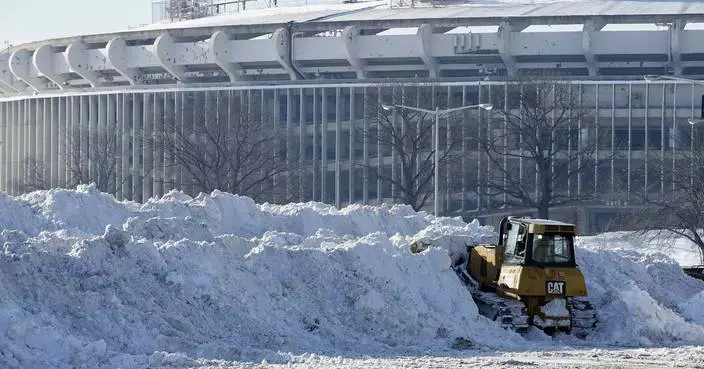
Senate passes RFK Stadium land bill, giving the Washington Commanders a major off-the-field win
- What we know about the suspect behind the German Christmas market attack
- Senate review of Supreme Court ethics finds more luxury trips and urges enforceable code of conduct
- Death toll in attack on Christmas market in Germany rises to 5 and more than 200 injured
- Ukrainian drones strike deep into Russian territory, hundreds of miles from the front line
- A rocket from Yemen strikes Tel Aviv, injuring 16, and Palestinians mourn a dozen children in Gaza
- AP PHOTOS: Holiday lights illuminate the world
- Syrian soldiers distance themselves from Assad in return for promised amnesty
- Farmers are still reeling months after Hurricane Helene ravaged crops across the South
- German Christmas market ramming is the latest attack to use vehicles as deadly weapons

Uzbek-Chinese joint archaeological expedition unveils key Silk Road discoveries
- State key laboratories in Macao promote local, national scientific, social progress
- Int'l guests visit Beijing citizen hotline service headquarters
- IAF prepares several weeks for overnight Yemen strikes: Israeli military
- All-around rural revitalization vital for developed and previously impoverished regions: expert
- Macao Chinese Orchestra strives to bridge cultures through power of music
- First regular international flight linking Tashkent, Sanya lands
- China urges UK to deepen economic cooperation for mutual benefit: FM spokesman
- US urged to maintain positive momentum in anti-drug cooperation with China
- China supports Myanmar's political parties in properly addressing issues through dialog: spokesman

The Art of Lightness: ASUS to Unveil World's Lightest Copilot+ PC
- Samsung Press Conference at CES 2025 'AI for All: Everyday, Everywhere'
- Government funding difficulties create gloom for federal workers before Christmas
- Florida requires teaching Black history. Some don't trust schools to do it justice
- The Latest: Schumer says Senate on course to pass bill before funding lapses at midnight
- Dolphins and 49ers will both try to bounce back from disappointing losses when they meet Sunday
- Senate approves 235th judge of Biden's term, beating Trump's tally
- University of California campuses resolve discrimination complaints stemming from Gaza protests
- Big Lots conducts going-out-of-business sales after sale of company falls through
- Amazon and Starbucks workers are on strike. Trump might have something to do with it

How to kick back, relax and embrace a less-than-perfect holiday
- France's Mayotte struggles to recover as cyclone overwhelms hospitals
- Mystery drone sightings continue in New Jersey and across the US. Here's what we know
- Amazon workers are striking at multiple facilities. Here's what you should know
- Sidearm-throwing lefty reliever Hoby Milner agrees to 1-year deal with his local Texas Rangers
- Minneapolis softens law on obstructing abortion clinics in response to free-speech lawsuit
- Alabama profits off prisoners who work at McDonald’s but deems them too dangerous for parole
- The year in review: Influential people who died in 2024
- Takeaways from The Associated Press’ reporting on prison labor in Alabama
- Rwanda and WHO declare end of Marburg outbreak after no new cases reported

Falcons turn to rookie QB Michael Penix Jr. for key game vs Giants
- In a calendar rarity, Hanukkah starts this year on Christmas Day
- It's eggnog season. The boozy beverage dates back to medieval England but remains a holiday hit
- Thousands greet the winter solstice at the ancient Stonehenge monument
- NORAD's Santa tracker was a Cold War morale boost. Now it attracts millions of kids
- A traditional send-off in New Orleans for an innovative brass band musician
- At least 2 dead and 60 hurt after a car drives into a German Christmas market in a suspected attack
- France's anti-terrorism court convicts 8 people of involvement in the 2020 beheading of a teacher
- White House starts scrapping pending regulations on transgender athletes and student debt
- Greece’s former royal family seeks to reclaim citizenship 50 years after monarchy abolished

Man City loses again in 2-1 defeat to Aston Villa
- Huetter silences Swiss crowd when she finishes ahead of Gut-Behrami to win super-G in St. Moritz
- Lindsey Vonn takes a low-risk approach and places 14th in her return to World Cup skiing at age 40
- Odermatt finally wins in Gardena as he dominates a World Cup downhill
- George Eastham, England 1966 World Cup winning squad member who criticized apartheid, dies at 88
- Philadelphia 76ers star Joel Embiid working through injuries and mental health struggles
- Makar, Avalanche continue special teams success in 4-2 win over Ducks
- Matt Murray makes 25 saves for 1st NHL win in nearly 21 months as Maple Leafs beat Sabres 6-3
- Reds acquire veteran catcher Jose Trevino in a trade with the Yankees
- The Thunder should have been quite tired. They went 2-0 in Florida anyway, pushing record to 22-5
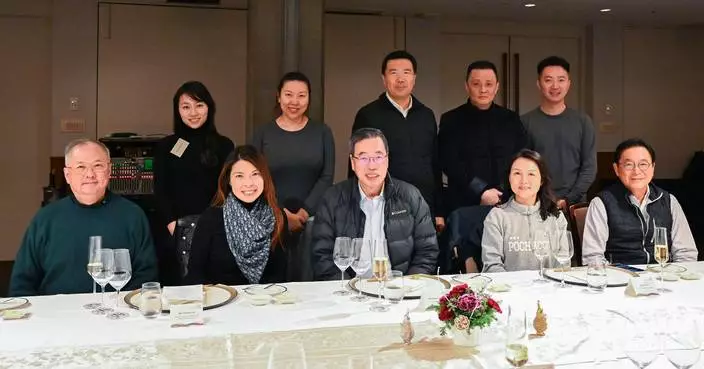
LegCo Delegation Begins Four-Day Visit to Japan to Strengthen Economic and Cultural Ties
- HKSAR Government Condemns US Report, Accuses It of Malicious Interference and Smearing Remarks Against Hong Kong
- Customs Seizes 16.2 kg of Ketamine at Hong Kong Airport, Arrests Female Passenger
- Home Affairs Department Opens 18 Temporary Cold Shelters Amid Cold Weather Warning
- CAS Cadet Corps Celebrates 145th Passing-out Parade, Commending New Cadets' Commitment to Future Leadership in Hong Kong.
- Hong Kong Comics Shine at Comic Fiesta 2024 in Kuala Lumpur, Promoting Creative Talent and Cultural Exchange.
- 10% rise in non-local firms hailed
- Hong Kong Customs Raids 15 Party Rooms in Crackdown on Infringing Karaoke Activities
- CHP Urges Elderly to Take Precautions Against Cold Weather Health Risks
- Home Affairs Opens 18 Cold Shelters Amid Severe Weather Conditions
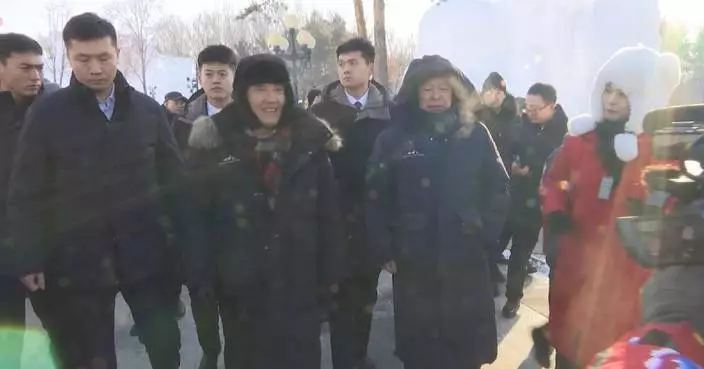
Taiwan youth delegation participates in ice and snow festival in Harbin
- Trade ties between Macao, mainland get stronger over past 25 years
- Macao sees surge in tourism with cultural and modern charms
- Int'l observers hail Beijing's swift-response public hotline, integrated call centers
- Crowds gather to give warm welcome to President Xi in Macao
- China, India reach six-point consensus on boundary question
- Macao buzzing with festive spirit to mark 25th anniversary of return to China
- Macao targets more global events to enhance local sports industry: official
- UN envoy underlines need for inclusive political transition in Syria, acknowledges economic challenges
- US stocks close lower, US dollar ticks up
Category · News

Falcons turn to rookie QB Michael Penix Jr. for key game vs Giants

Senate passes RFK Stadium land bill, giving the Washington Commanders a major off-the-field win

How to kick back, relax and embrace a less-than-perfect holiday

Man City loses again in 2-1 defeat to Aston Villa

Huetter silences Swiss crowd when she finishes ahead of Gut-Behrami to win super-G in St. Moritz

Lindsey Vonn takes a low-risk approach and places 14th in her return to World Cup skiing at age 40

What we know about the suspect behind the German Christmas market attack
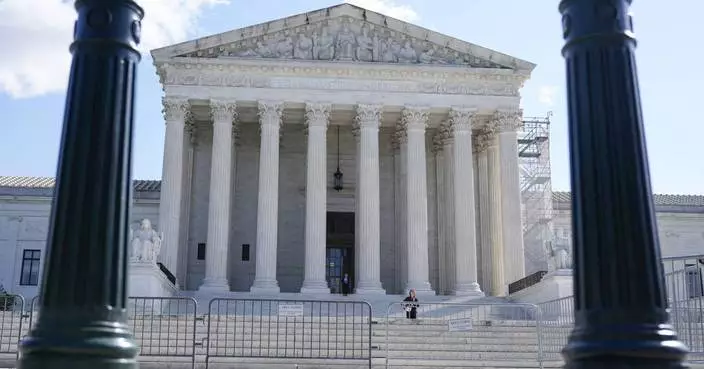
Senate review of Supreme Court ethics finds more luxury trips and urges enforceable code of conduct

Death toll in attack on Christmas market in Germany rises to 5 and more than 200 injured
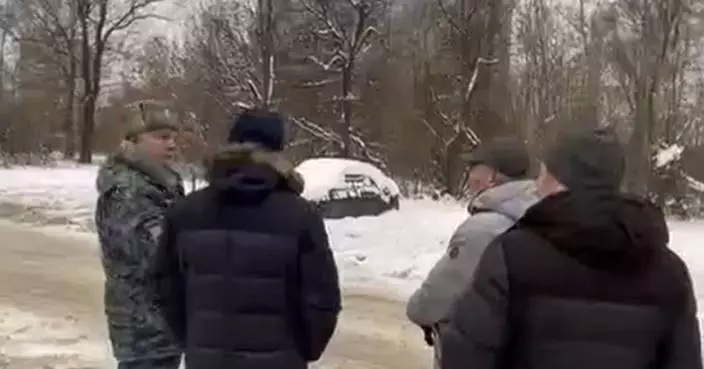
Ukrainian drones strike deep into Russian territory, hundreds of miles from the front line
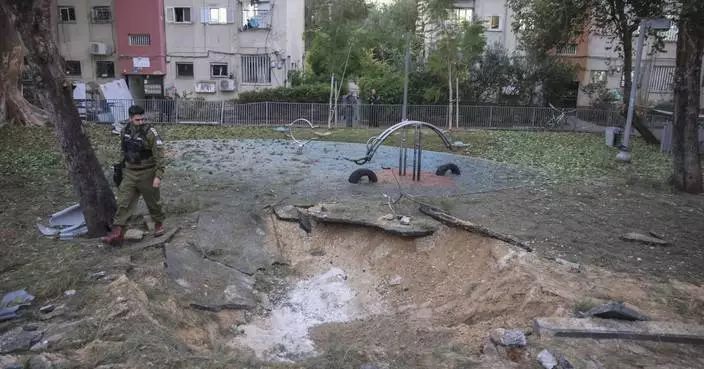
A rocket from Yemen strikes Tel Aviv, injuring 16, and Palestinians mourn a dozen children in Gaza

AP PHOTOS: Holiday lights illuminate the world
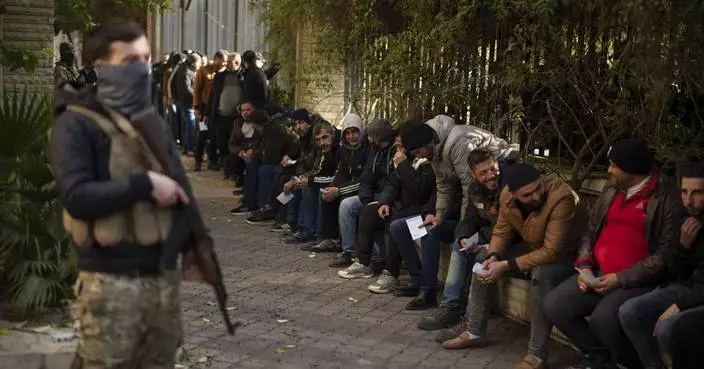
Syrian soldiers distance themselves from Assad in return for promised amnesty
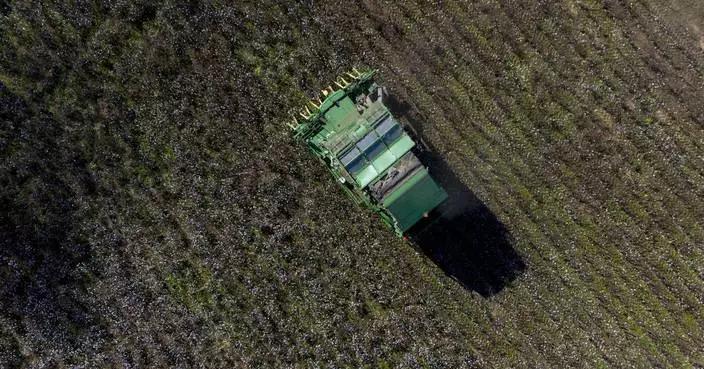
Farmers are still reeling months after Hurricane Helene ravaged crops across the South

German Christmas market ramming is the latest attack to use vehicles as deadly weapons

Odermatt finally wins in Gardena as he dominates a World Cup downhill
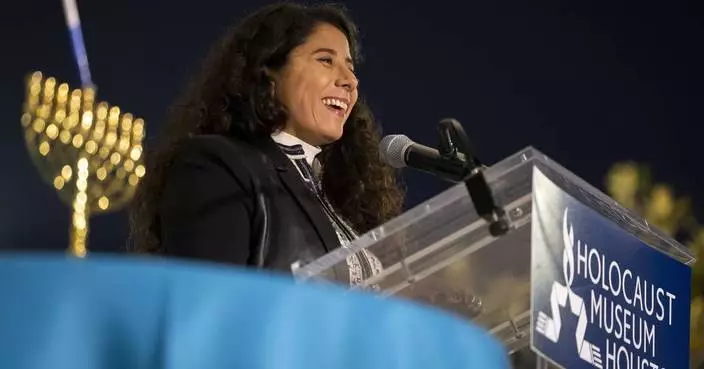
In a calendar rarity, Hanukkah starts this year on Christmas Day

George Eastham, England 1966 World Cup winning squad member who criticized apartheid, dies at 88
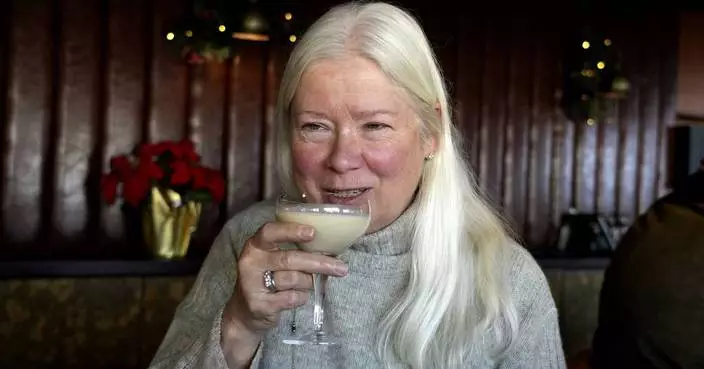
It's eggnog season. The boozy beverage dates back to medieval England but remains a holiday hit

Philadelphia 76ers star Joel Embiid working through injuries and mental health struggles
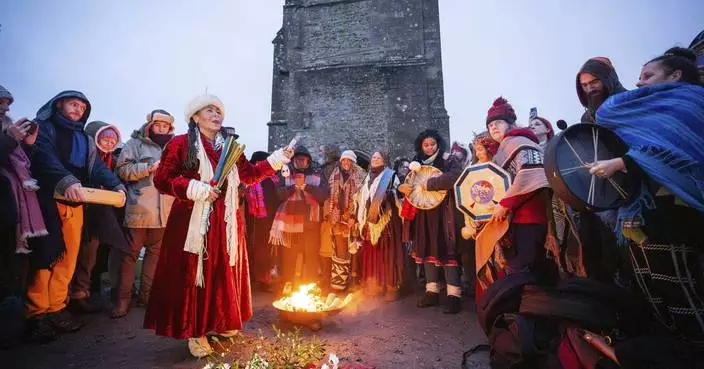
Thousands greet the winter solstice at the ancient Stonehenge monument
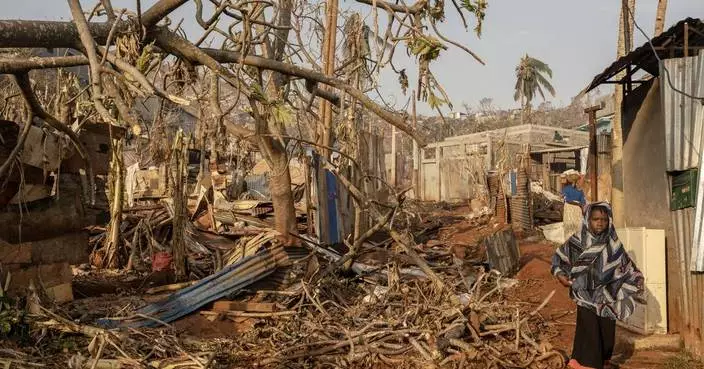
France's Mayotte struggles to recover as cyclone overwhelms hospitals

LegCo Delegation Begins Four-Day Visit to Japan to Strengthen Economic and Cultural Ties

HKSAR Government Condemns US Report, Accuses It of Malicious Interference and Smearing Remarks Against Hong Kong

The Art of Lightness: ASUS to Unveil World's Lightest Copilot+ PC
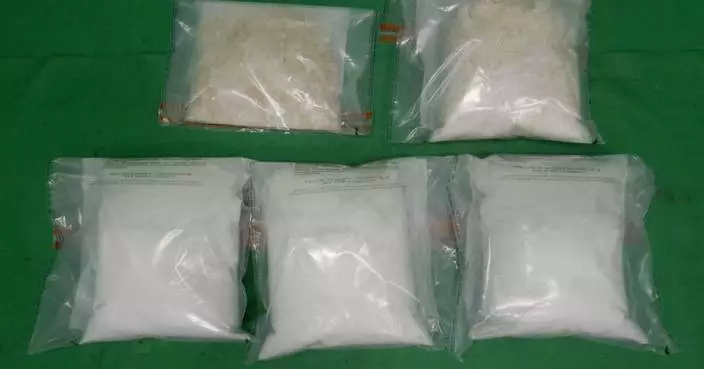
Customs Seizes 16.2 kg of Ketamine at Hong Kong Airport, Arrests Female Passenger

Home Affairs Department Opens 18 Temporary Cold Shelters Amid Cold Weather Warning
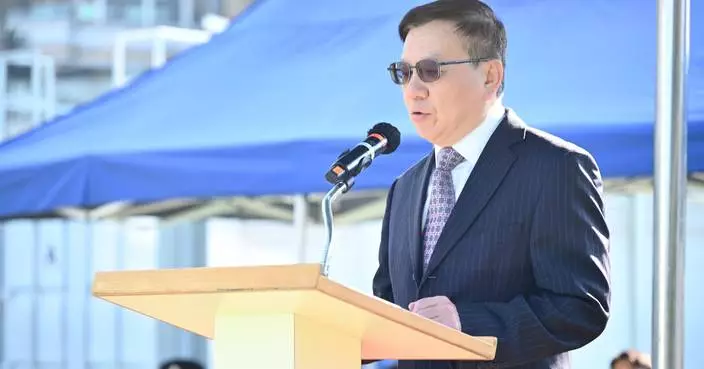
CAS Cadet Corps Celebrates 145th Passing-out Parade, Commending New Cadets' Commitment to Future Leadership in Hong Kong.

Samsung Press Conference at CES 2025 'AI for All: Everyday, Everywhere'
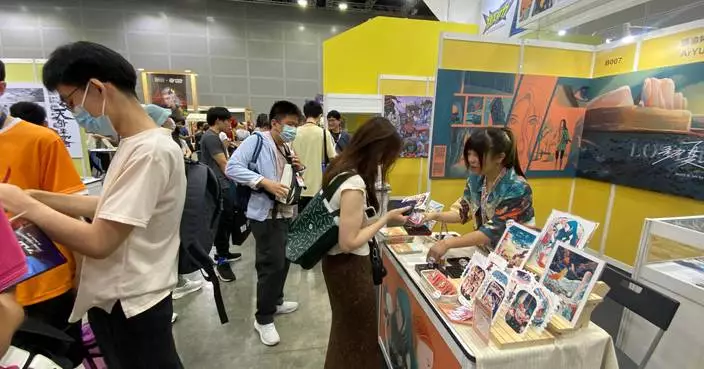
Hong Kong Comics Shine at Comic Fiesta 2024 in Kuala Lumpur, Promoting Creative Talent and Cultural Exchange.
NORAD's Santa tracker was a Cold War morale boost. Now it attracts millions of kids
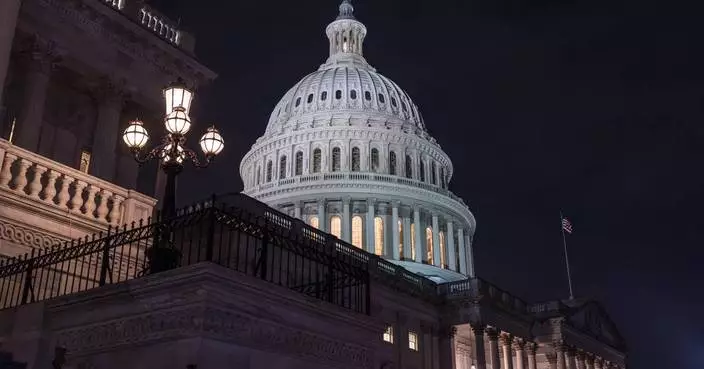
Senate passes Social Security benefits boost for many public service retirees
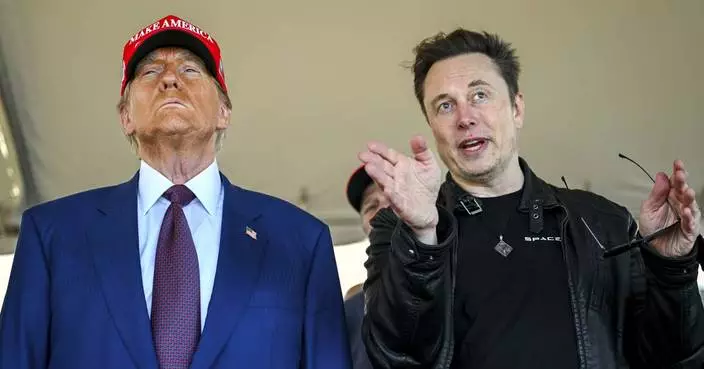
Musk helped kill a congressional spending bill. But much of what he spread was misinformation

Makar, Avalanche continue special teams success in 4-2 win over Ducks
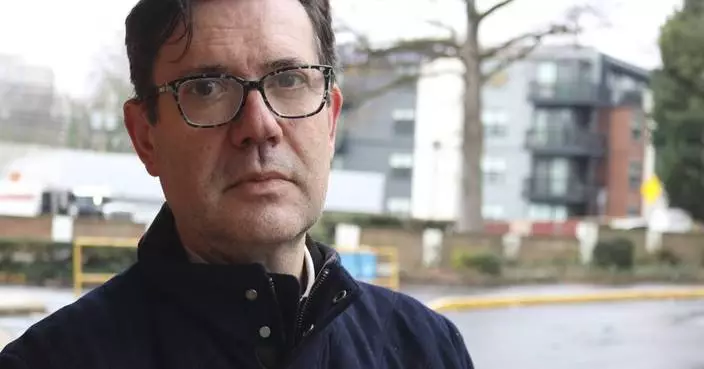
Government funding difficulties create gloom for federal workers before Christmas
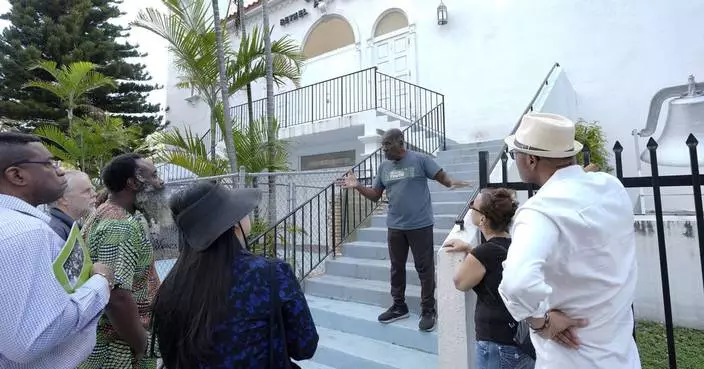
Florida requires teaching Black history. Some don't trust schools to do it justice

Santa and Mrs. Claus use military transports to bring Christmas to an Alaska Native village

AP PHOTOS: Scenes of devastation from the aftermath of the Indian Ocean tsunami
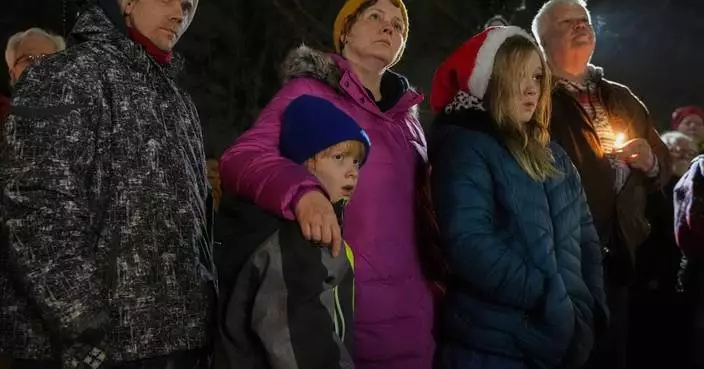
After shooting, Wisconsin school and church lean into Christmas message for comfort
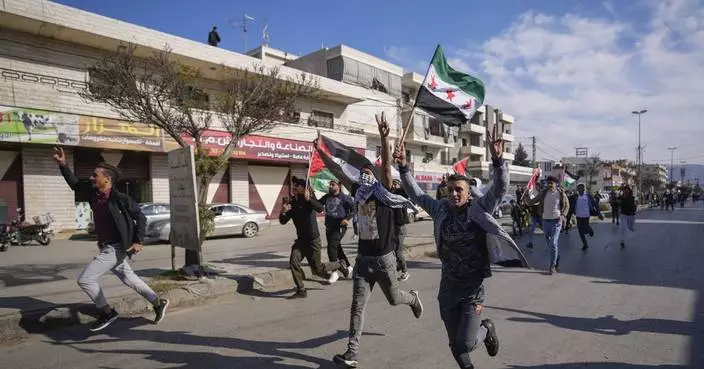
Sectarian violence in Syria has been less intense than feared since Assad's ouster

Matt Murray makes 25 saves for 1st NHL win in nearly 21 months as Maple Leafs beat Sabres 6-3

Reds acquire veteran catcher Jose Trevino in a trade with the Yankees
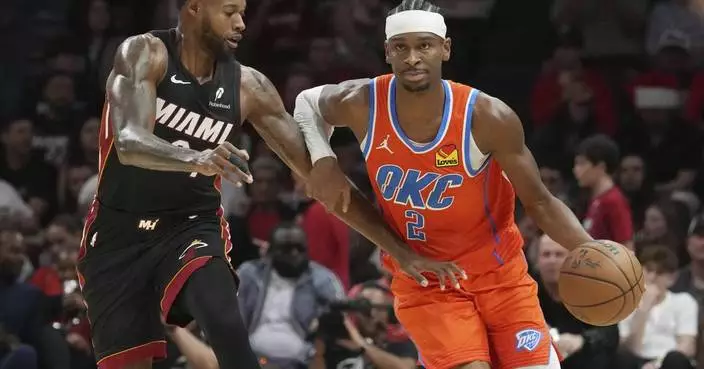
The Thunder should have been quite tired. They went 2-0 in Florida anyway, pushing record to 22-5

Shesterkin dazzles with 41 saves as Rangers beat Stars 3-1 to end three-game losing streak
10% rise in non-local firms hailed
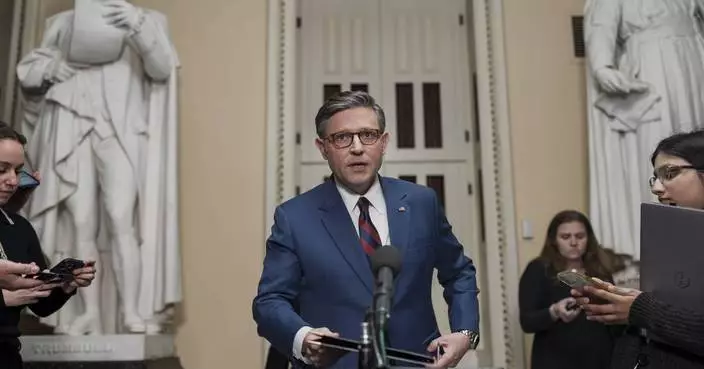
The Latest: Schumer says Senate on course to pass bill before funding lapses at midnight

Guenther nets pair of goals, Utah beats Minnesota 2-1 for season-high 4th straight win
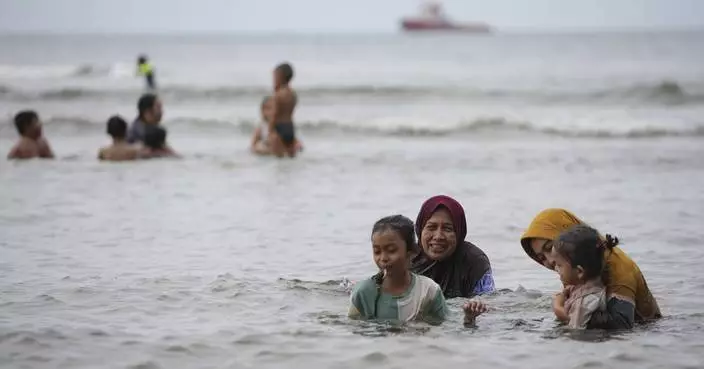
Indonesians mark 2 decades since the tragic tsunami that killed hundreds of thousands
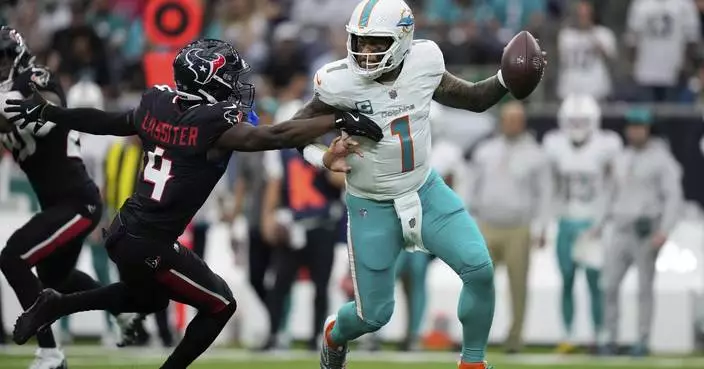
Dolphins and 49ers will both try to bounce back from disappointing losses when they meet Sunday
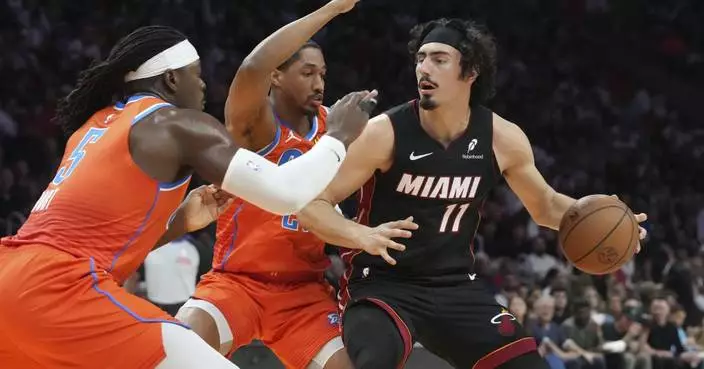
Jalen Williams scores 33 points, Thunder remain red-hot by topping Heat 104-97
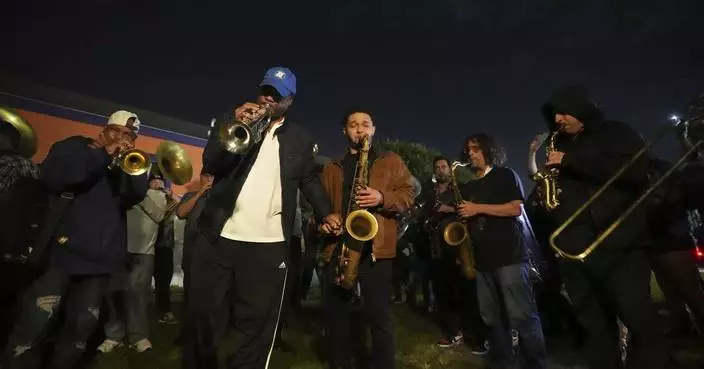
A traditional send-off in New Orleans for an innovative brass band musician
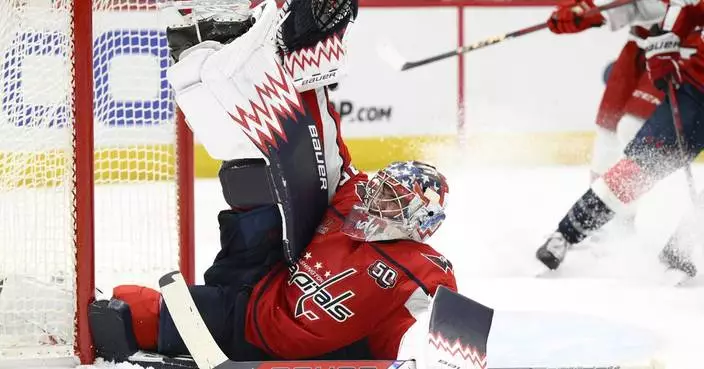
Charlie Lindgren shines with a windmill save as the Capitals beat the Hurricanes 3-1
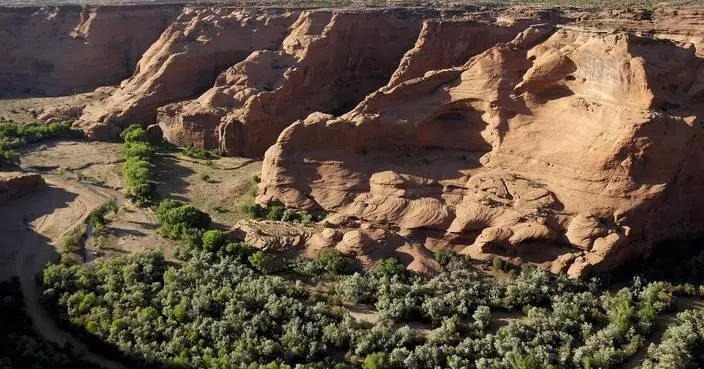
Canyon de Chelly in Arizona will become latest national park unit to ban commercial air tours
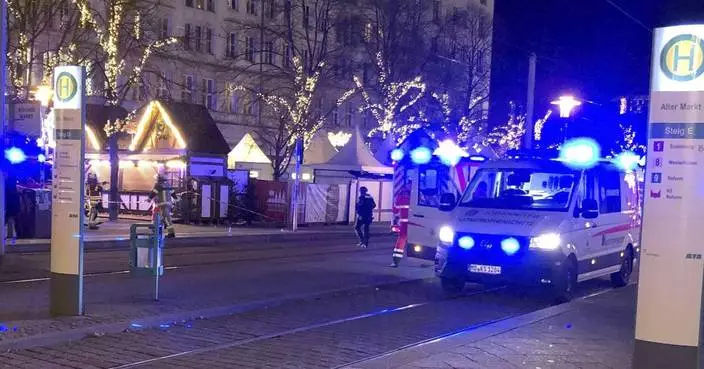
At least 2 dead and 60 hurt after a car drives into a German Christmas market in a suspected attack

Barkov scores power-play goal late in OT, Panthers beat Blues 2-1
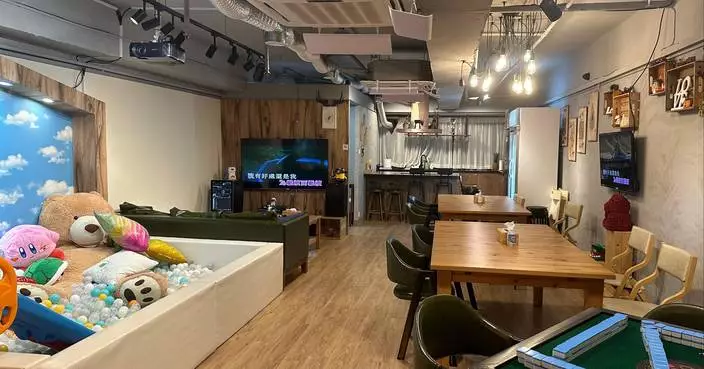
Hong Kong Customs Raids 15 Party Rooms in Crackdown on Infringing Karaoke Activities

Embiid scores 34 points in return, helping the 76ers beat the Hornets 108-98
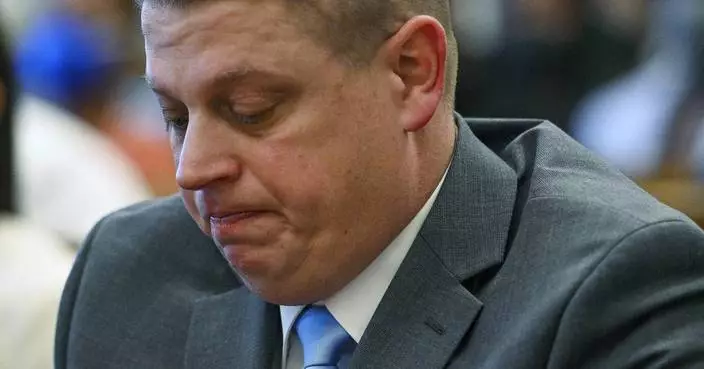
Missouri governor commutes sentence of white police officer convicted of fatally shooting Black man
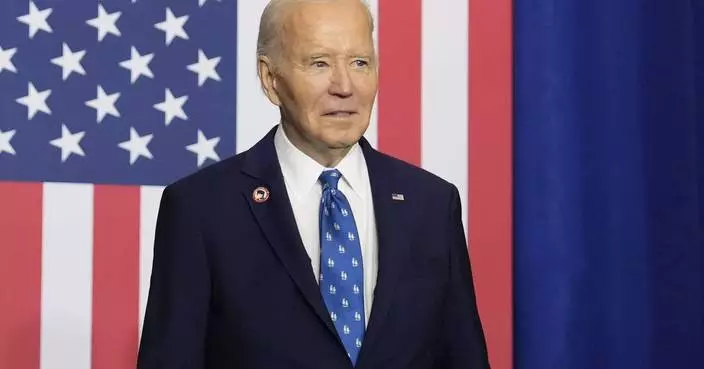
Senate approves 235th judge of Biden's term, beating Trump's tally

Lagway throws for 305 yards to help Florida trounce Tulane 33-8 in the Gasparilla Bowl
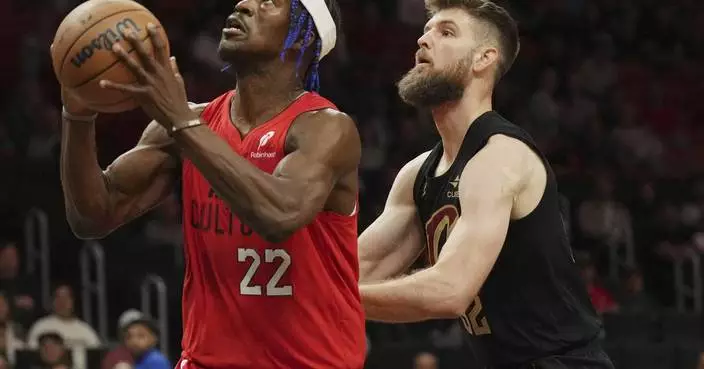
Jimmy Butler turns ankle, then leaves Heat-Thunder game with illness

CHP Urges Elderly to Take Precautions Against Cold Weather Health Risks
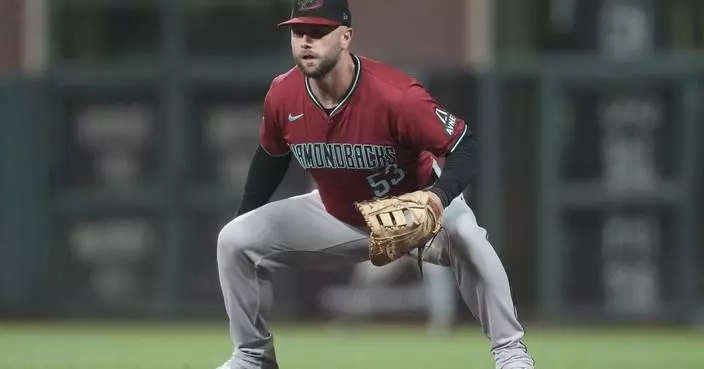
Christian Walker agrees to $60 million, 3-year contract with Astros, AP source says

Max Kepler and Phillies finalize $10 million, 1-year deal
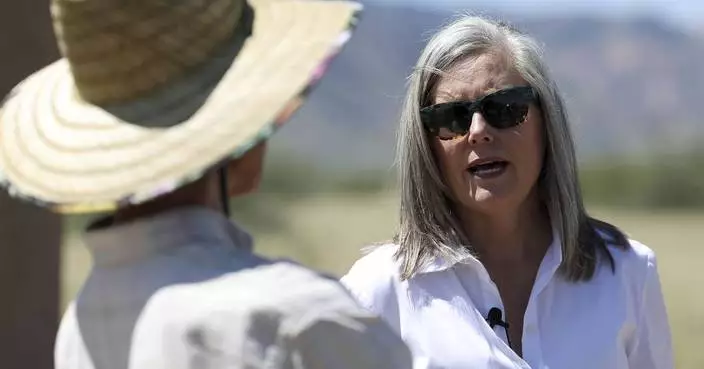
Arizona agency takes action to regulate groundwater use in rural southeast
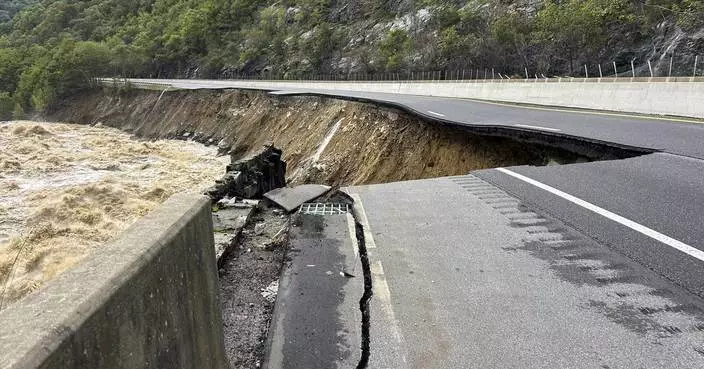
New damage delays I-40 reopening in North Carolina closed by Helene
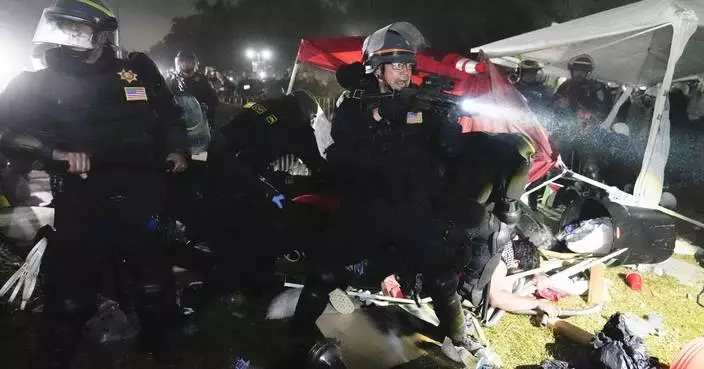
University of California campuses resolve discrimination complaints stemming from Gaza protests
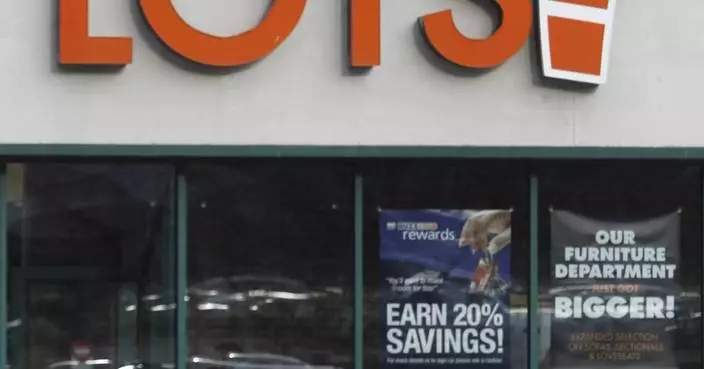
Big Lots conducts going-out-of-business sales after sale of company falls through

Browns star DE Myles Garrett sends strong message to struggling team: "I'm not trying to rebuild."
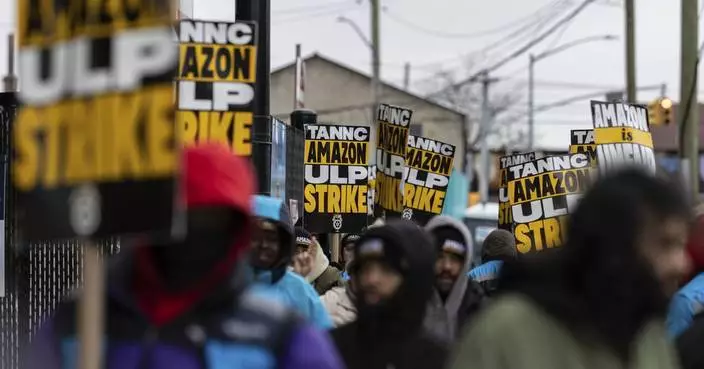
Amazon and Starbucks workers are on strike. Trump might have something to do with it

Mystery drone sightings continue in New Jersey and across the US. Here's what we know
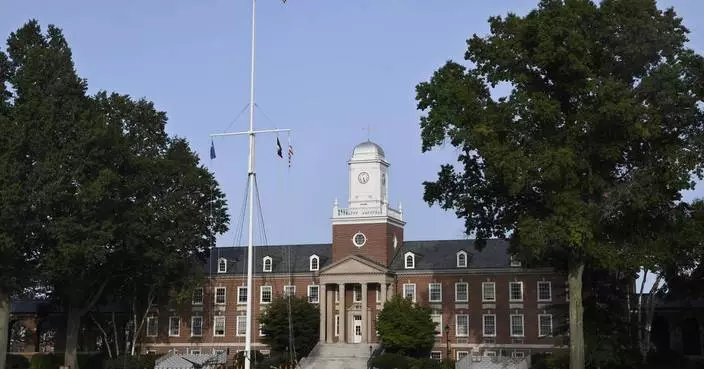
Report alleges Coast Guard leaders kept sexual assault investigation secret

Jalen Hurts fined for wearing mismatched cleats during Eagles' win over Steelers, AP source says
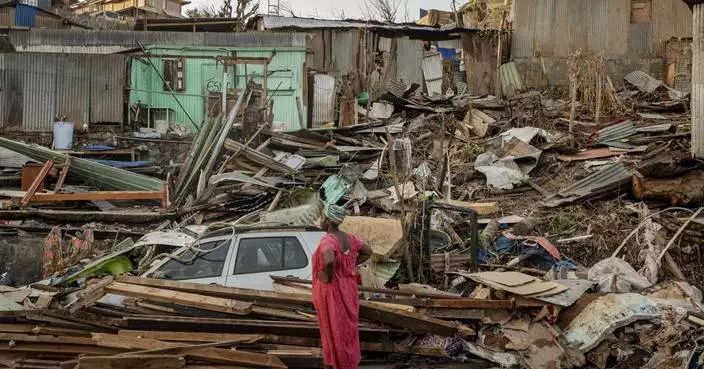
AP PHOTOS: Cyclone Chido's devastation of Mayotte was immediate and decades coming
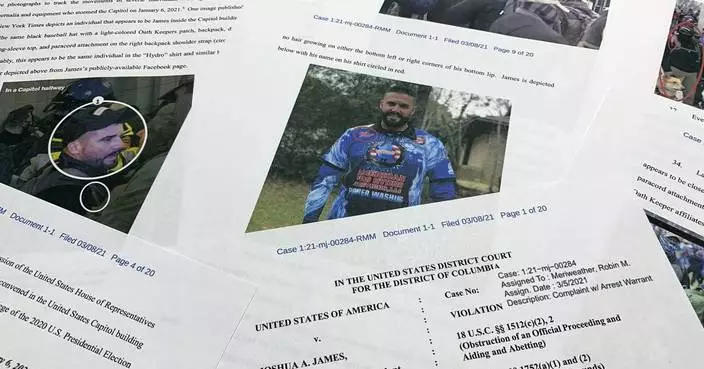
Army veteran sentenced to probation for milestone conviction in Oath Keepers sedition plot

Seahawks hope to increase playoff odds when they face Vikings
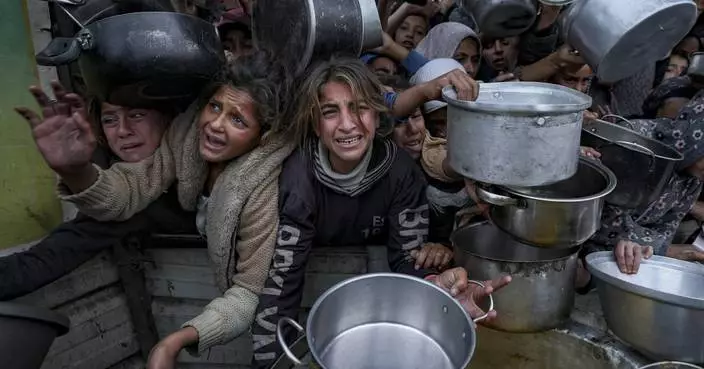
AP News Digest 6 p.m.
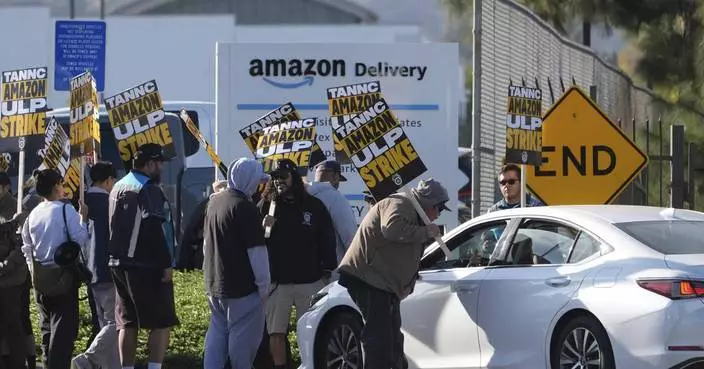
Amazon workers are striking at multiple facilities. Here's what you should know
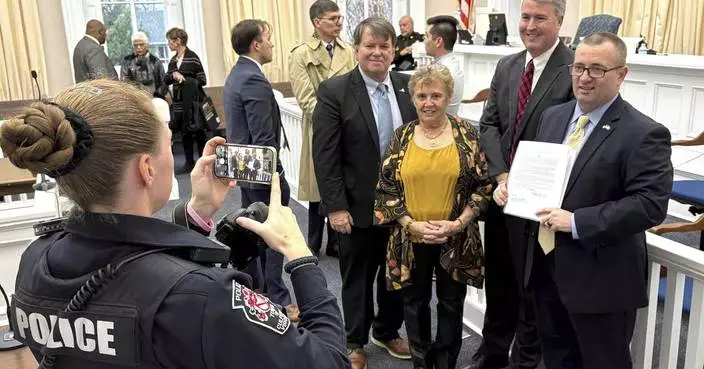
Men who were lynched more than a century ago are innocent, judge finds
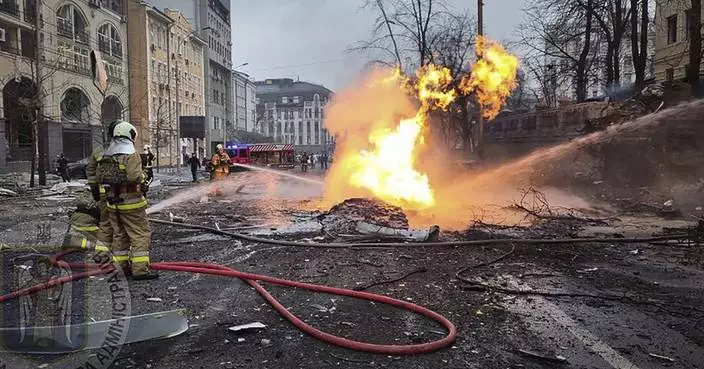
A Russian official says a Ukrainian strike with US-supplied missiles kills 6

Rams will try to extend their 3-game winning streak vs. Jets and keep their lead atop the NFC West

Jets defensive lineman Quinnen Williams will be a game-time decision vs. Rams

Hunter Truck Announces New Peterbilt Dealership in Scranton, PA

Cooper making big difference for Packers defense in his rookie season


